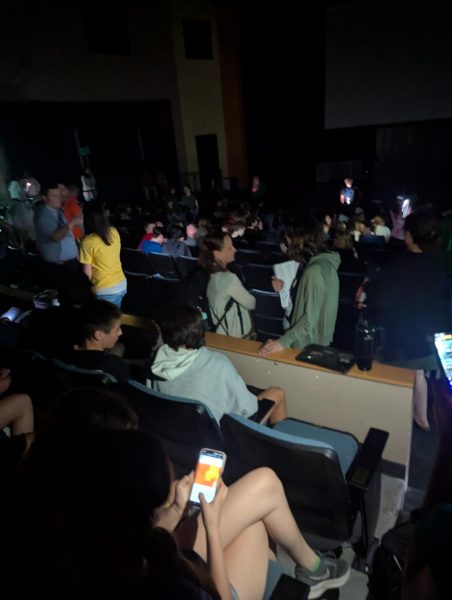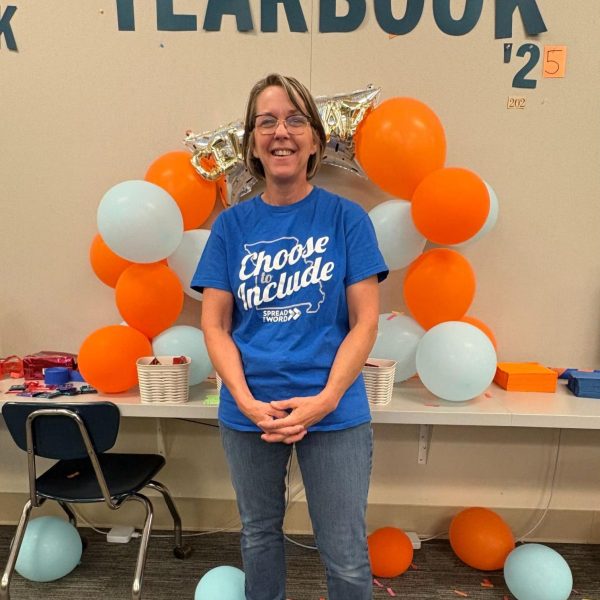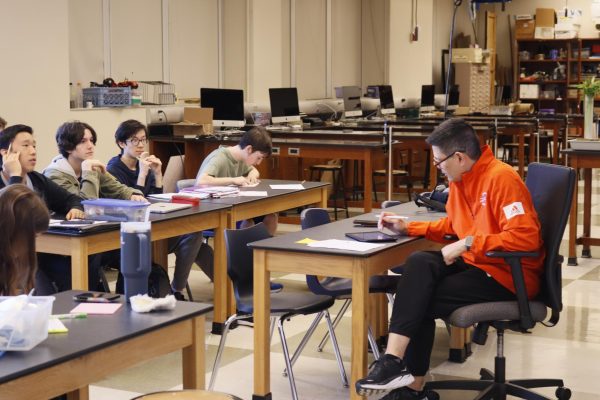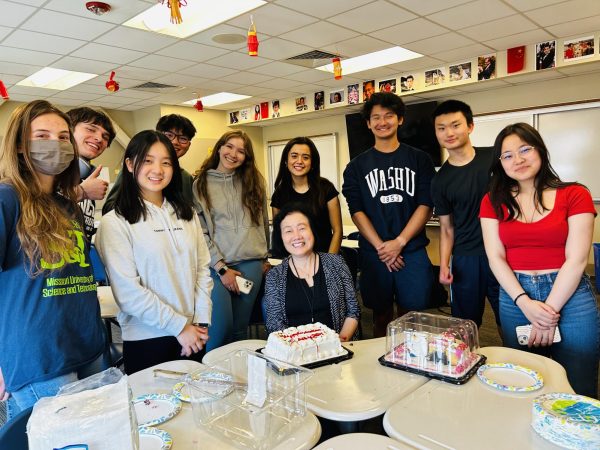State Senator Brian Williams: A Profile
Missouri State Senator Brian Williams sat down to give his take on current events and the latest legislation out of Jeff City.
Missouri Senate Communications
Missouri Sen. Brian Williams, D-University City (photo courtesy of Missouri Senate Communications).
State Senator Brian Williams has had a whirlwind few years in office. Williams was elected to represent Missouri’s 14th in 2018. His election made him the first Black man to serve in the Missouri Senate in 20 years. In his past three years in office, he has passed a few landmark pieces of legislation: most notably, his bipartisan police reform act, which the governor signed into law in June of last year. I recently sat down on a Zoom call with Williams to discuss the current political climate in Jefferson City and to get his take on new legislation.
Why do you think critical race theory has exploded in political rhetoric in the past couple of months?
Well, from a political standpoint, I think it’s just folks who continue to play into Donald Trump’s playbook. He made it okay for folks to say obscene things and be divisive, and create all of these narratives. I also think that there are folks who don’t see the importance of really upholding history. I mean, when you think about things that happen in the past, and you try to censor folks for acknowledging that, I mean, The 1619 Project is one example. To think that folks would rather use that as a tool to create divisiveness versus using it as a learning opportunity of things that happened in the past is scary.
Do you think House Bills 1474 and 1995* will pass?
I believe that it’s always a real possibility that a bill can pass, but I can tell you, I’m here in the Missouri Senate, and I’ll be doing everything in my power to prevent that from going into law. I hope that what the debate gets there if it gets there, we have colleagues on both sides of the aisle that see that this is an issue. Critical race theory should be a non-starter, and it shouldn’t become the center of what we are focusing on.
Wentzville School District recently banned The Bluest Eye by Toni Morrison. What thoughts do you have about the recent banning of books in Missouri school districts?
I think it’s just another layer of hate and it is depriving students of access to information. Honestly, and I don’t want to be partisan when I say this, but I think steps like that is to is one example of how we got Donald Trump is that you have so many folks that that that take a very uneducated approach to things that he said and it became the keystone to how we do things in our country. So I’m disappointed about it and I hope that that school district understands again, we shouldn’t be right, right. Instead of depriving students of access to information, we should be promoting a well-rounded curriculum.
Eric Schmitt recently filed lawsuits against Clayton and many other school districts.** Do you have any thoughts on some of these lawsuits?
I think the lawsuits that have been filed by the Attorney General are a disservice to the school districts. Considering that we have a lot of teacher shortages and staff that are out due to various reasons, a lot of them are related to COVID. To think that now they have to respond to lawsuits and provide documents to determine whether or not they teach CRT has only done a disservice to teachers. And I think we should be taking steps to support and promote teachers to do their job and educate our students and not have to respond to partisan positions and political theater.
How has partisanship changed since you have been in office?
The 2016 election cycle really set the tone in terms of my time of service right now. Just saying how divisive that election cycle was and to see the series of things that have happened. One example is seeing folks storm the U.S. Capitol. This shows how we’ve let partisan politics rally up a base of people that ultimately lead to U.S. Capitol Police officers losing their lives. I think those partisan positions created a level of divisiveness that has led to an unprecedented instance of violence that I hope that you don’t see again.
Why do you think there has been so much political attention focused on school districts in the past year?
I think that there’s been this playbook that if folks attack local school districts, it will rally up a base of people. This instead has created an environment where we’ve made jobs more difficult for teachers and again, have whitewashed history and deprived students of quality education.
The governor recently gave his State of the State address. What key takeaways did you get from that?
Well, I think the governor talked about the federal money that’s coming to our region. When I think about issues in the St. Louis region such as food deserts and unhoused folks, there is an opportunity to use those federal dollars to revitalize our region, but most importantly, help our communities get out of this pandemic. The pandemic put our country in a position where we’ve been exposed for our shortcomings. We now have an opportunity to create quality affordable housing and to provide things like grocery stores, access to health care centers, and most importantly, to revitalize underrepresented and overlooked communities in our region. We have an opportunity to right that wrong. The governor has talked about doing that. So I think that’s a positive. He also talked about law enforcement, and I was proud to have a bill signed into law that addressed criminal justice reform. Now we have one of the strongest use of force databases in the country. The governor addressed that during the State of State, and it was something that we were fortunate to pass with bipartisan support here in the legislature.
You recently introduced a bill focused on Holocaust education. Can you tell me more about that?
Essentially what it does is provide an opportunity for folks to learn about the Holocaust. I think it’s important because, again, as a Black man, when I was elected to the Missouri Senate, I was the first to come here in two decades. So I know how important it is for there to be a voice of inclusion for groups that may not always have their voices represented, especially in government. So, you know, I represent Jewish constituency, I also understood immediately that that’s just one group, along with many other underrepresented groups that should be able to not have the history whitewashed.
This interview has been edited for length and clarity.
*House Bills 1474 and 1995 are aimed at banning critical race theory in Missouri public schools. The bills’ definitions of CRT are inconsistent with those of scholars who study the theory.
**14 school districts were initially named in suits filed by the state’s Attorney General Eric Schmitt; in late January 2022, Schmitt named 9 additional districts in suits related to mask mandates and critical race theory.
A $50 or more donation includes a subscription to the Clayton High School Globe 2024-2025 print news magazine.
We will mail a copy of our issues to the recipients of your choice.
Your donation helps preserve the tangible experience of print journalism, ensuring that student voices reach our community and that student democracy thrives.

Alex Slen is a senior at CHS and is in his third year on the Globe staff. He is on the varsity cross country team, The Vice President of Competition for DECA, a STUCO member, the...











